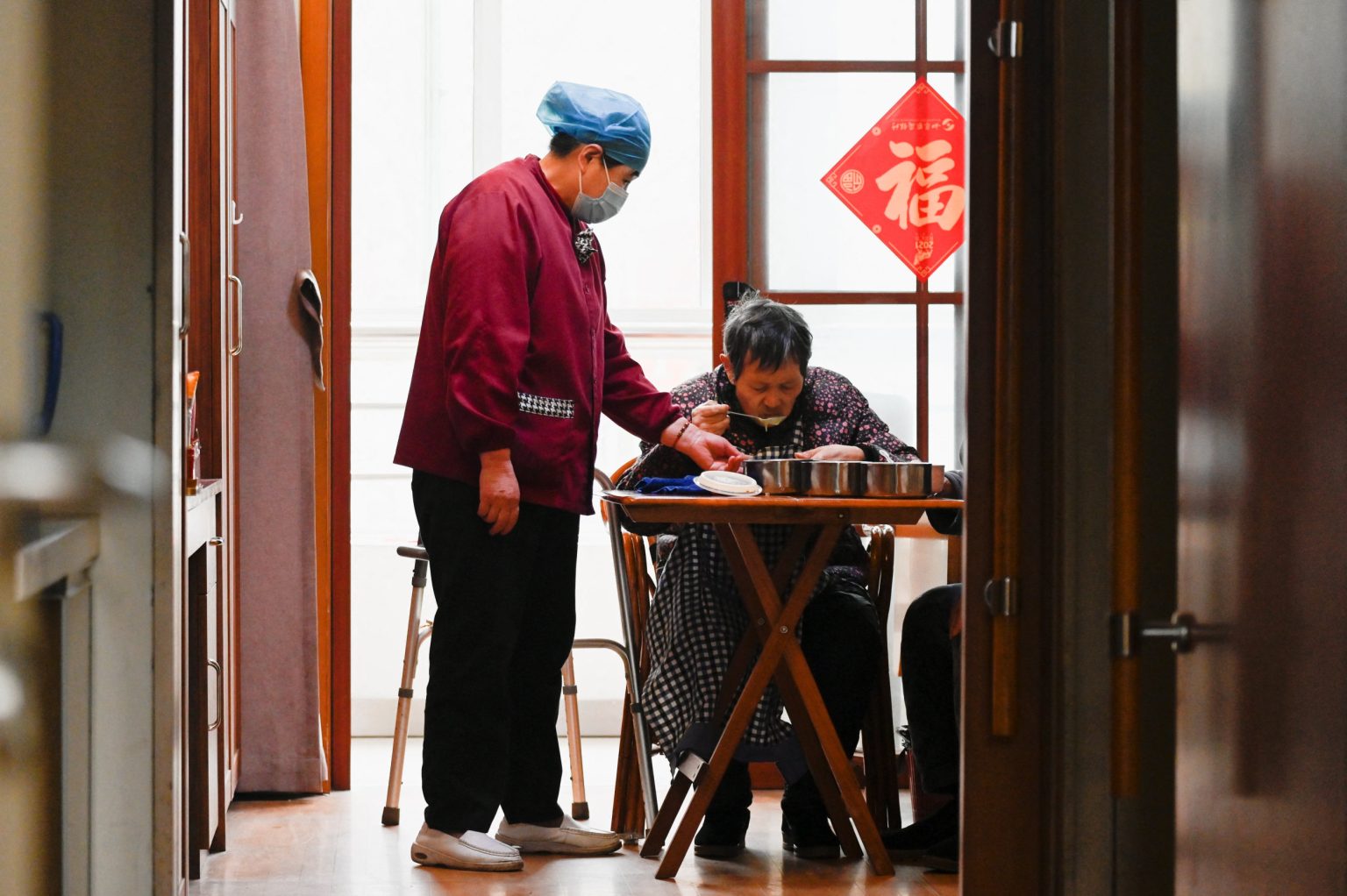As China’s birthrate continues to decline, many empty kindergartens are being repurposed as nursing homes to accommodate the country’s growing elderly population. This shift is a response to the challenges faced by both the education and elderly care sectors as the population ages and birthrates decrease. Kindergartens, especially those that are privately funded, have been struggling to stay afloat, with many having to close due to declining enrollment numbers. The closure of these kindergartens has opened up opportunities for them to be transformed into facilities for the elderly, providing much-needed care and support for older individuals.
One such example is a former kindergarten in Guangdong province that has been converted into a nursing home for the elderly. The director of a private kindergarten in the province made the decision to close the school in response to declining birth rates, leading to its transformation into a facility for elderly residents. This innovative approach has received financial support from local government and construction companies, demonstrating a collaborative effort to address the needs of the aging population. The facility offers a range of activities and services, including regular visits from a geriatrician and volunteers from local companies and universities.
The conversion of former kindergartens into nursing homes is a trend that is gaining traction in other major cities in China, including Shenzhen, Jinan, and Taiyuan. This approach has been lauded by Chinese sociologists and demographers as a forward-thinking move to capitalize on the growing “silver economy” in the country. China is rapidly becoming a super-aged society, with a significant portion of the population over the age of 65. This demographic shift has led policymakers to consider controversial measures, such as raising the retirement age, to address the challenges posed by an aging population and declining birth rates.
The aging population and declining birth rates in China have significant implications for the country’s social safety nets and productivity levels. With the proportion of elderly individuals expected to rise to nearly 20 percent of the population, and possibly 28 percent within the next 20 years, there is a growing need for innovative solutions to support the growing elderly population. The conversion of empty kindergartens into nursing homes represents a creative approach to repurposing existing infrastructure to meet the needs of the aging population and provide much-needed care and support for elderly individuals.
The declining birth rate in China, which has fallen for the seventh consecutive year in 2023, has prompted a reevaluation of existing social and economic structures to address the challenges posed by an aging population. The shift towards repurposing empty kindergartens as nursing homes is a reflection of the changing demographics and the need for adaptive solutions to support the growing elderly population. By leveraging existing infrastructure and resources, these converted facilities are able to provide a wide range of services and activities to meet the needs of elderly residents and contribute to the development of a thriving silver economy in China.








